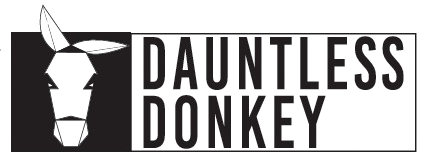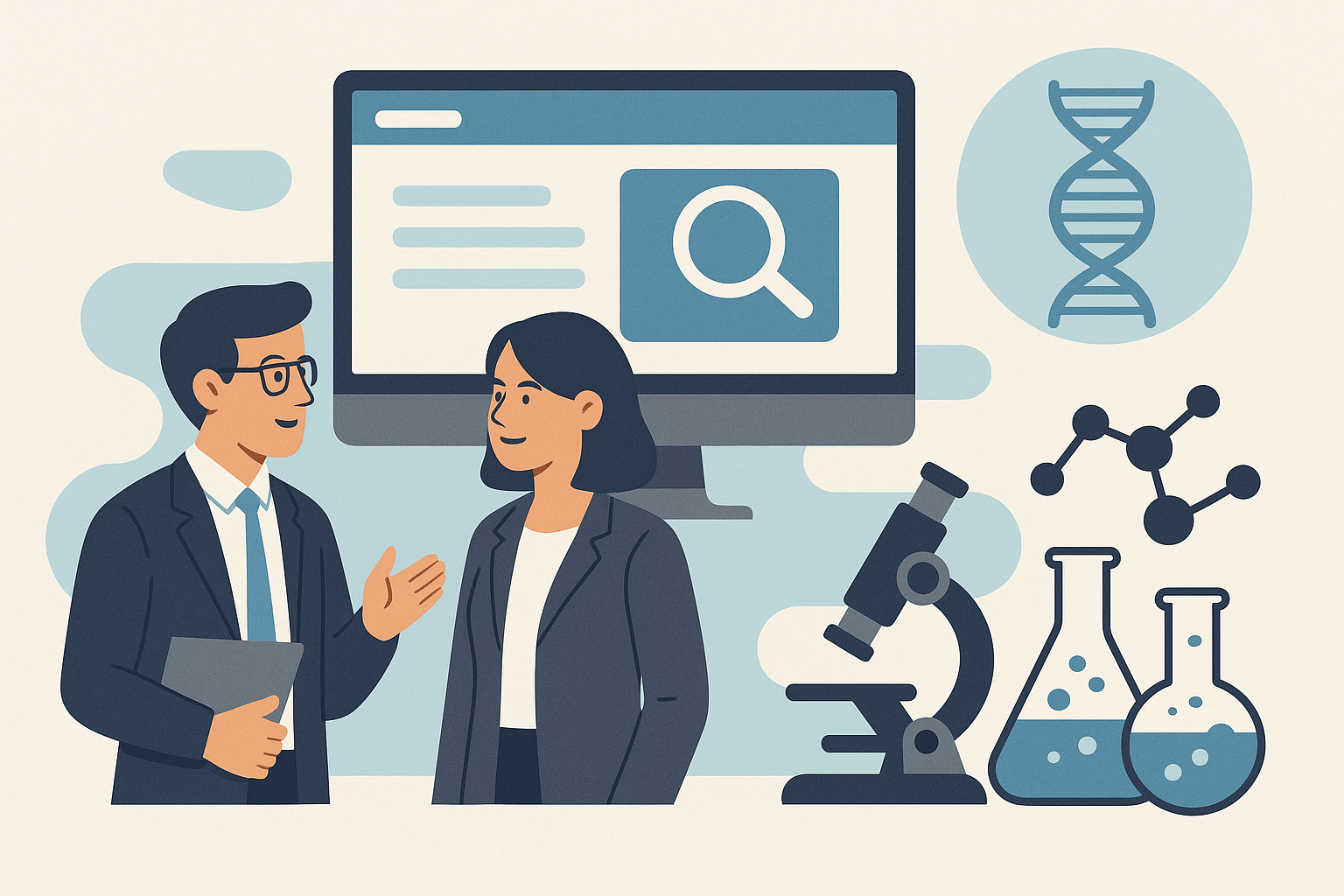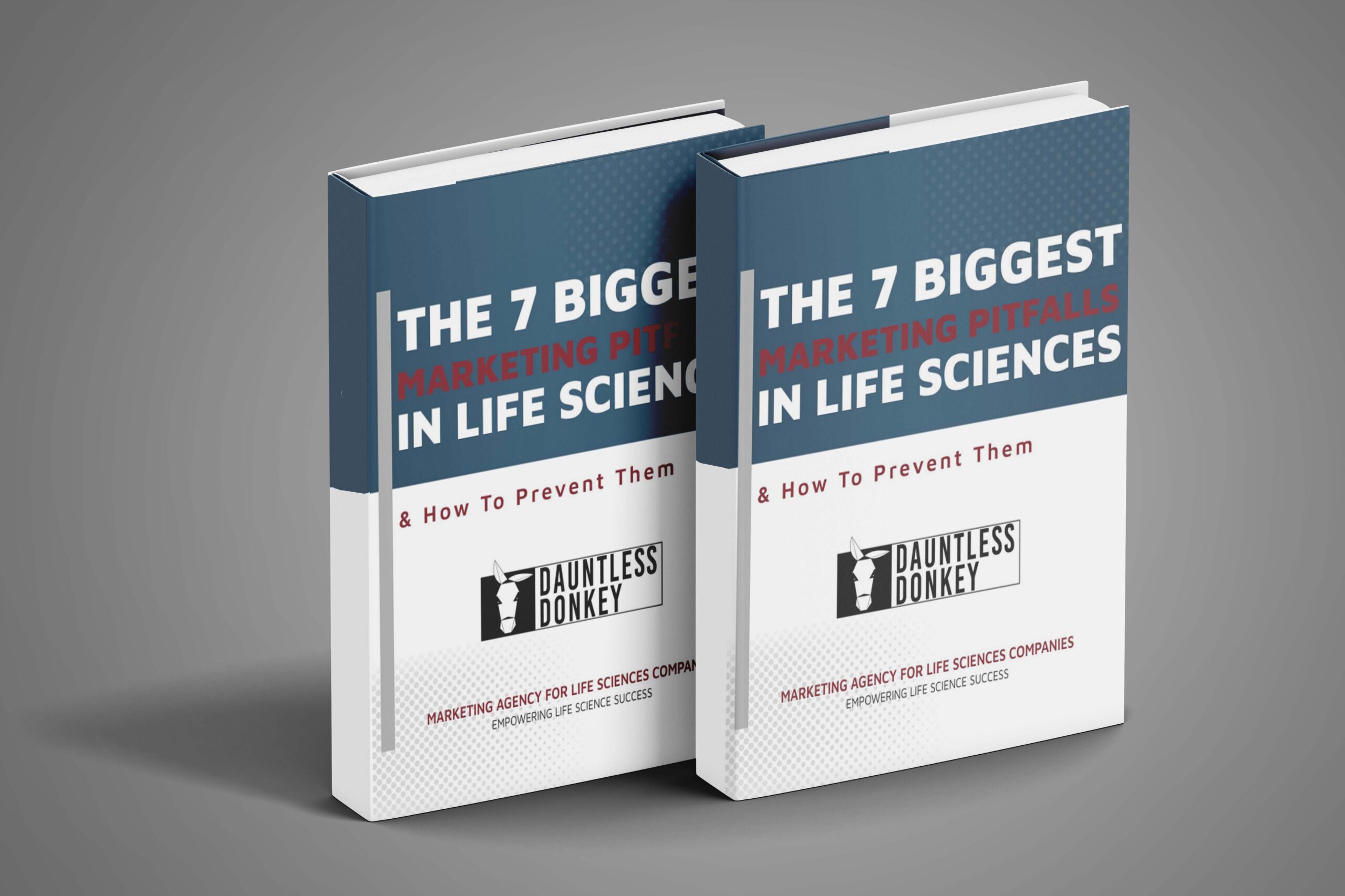In-house or marketing agency? What’s best for life sciences marketing
Choosing between an internal team or an external agency is a common challenge for life sciences companies, whether they’re involved with medical devices, healthcare brands, or pharmaceuticals. The decision hinges on various factors including business goals, flexibility, scientific expertise, and the ability to navigate strict regulations and engage healthcare professionals effectively. Both in-house and outsourced marketing have their unique advantages and limitations, particularly when it comes to developing marketing campaigns, digital strategies, and ensuring regulatory compliance.
Life sciences marketing requires a deep understanding of the critical industry it serves, combining scientific knowledge with marketing prowess across digital channels, market research, and data analytics. Whether the goal is to build trust with healthcare organizations, enhance brand positioning, or craft targeted messaging for target audiences, the choice between leveraging internal teams and partnering with a specialized agency impacts the effectiveness of marketing activities, brand awareness, and ultimately, the success of marketing initiatives.
Table of contents
In-house marketing: Pros & cons
In-house marketing teams in the life sciences sector benefit from deep brand knowledge, allowing for a dedicated focus and immediate internal collaboration. These teams are inherently aligned with the company’s culture and understand the complexities of its products, from medical devices to healthcare solutions, enabling them to create strategies that resonate deeply with their target audiences. This intimate brand understanding is crucial for navigating the highly specialized and regulated landscape of life sciences marketing.
However, in-house marketing teams often face limitations in resources and skill sets, particularly in areas like digital marketing, scientific SEO, and regulatory constraints unique to life sciences. Developing comprehensive marketing campaigns that comply with these constraints while remaining innovative and effective can be time-consuming and challenging to achieve without a broad range of specialized expertise.
The rapid pace at which digital trends evolve also presents a significant challenge for in-house teams, who may struggle to keep up without continuous training and investment in emerging technologies. For life sciences companies at a growth stage, these challenges are magnified, as they must navigate complex content requirements and engagement strategies with limited resources.
Despite these hurdles, in-house teams offer unparalleled dedication to brand development and leadership content, critical for long-term brand credibility and customer trust. However, their effectiveness can be limited by the breadth of their expertise and the scale of resources available to them, especially in a field as dynamic and competitive as life sciences.
Agency model: Pros & cons
Working with a specialized agency, such as DauntlessDonkey, provides life sciences companies with on-demand expertise and scalable teams for faster execution. Agencies bring deep expertise in life sciences marketing, from content development to managing ad campaigns, and have access to niche tools and platforms that can significantly elevate marketing initiatives. This model allows for a breadth of services, including digital marketing strategies and engagement through specialized channels, often with a portfolio of notable clients demonstrating their capabilities.
However, partnering with an agency may require additional time for onboarding and oversight to ensure they fully understand the nuances of the company’s products, target markets, and regulatory environment. Aligning an external agency with a company’s culture and internal processes can pose challenges, potentially impacting the cohesiveness and authenticity of marketing campaigns.
Agencies specializing in life sciences, such as DauntlessDonkey, offer the advantage of specialized support but must be carefully chosen to ensure they possess the necessary industry knowledge and experience. While they provide scalability and access to specialized expertise, the relationship and communication channels need to be managed to ensure alignment with the company’s marketing goals and brand strategy.
The agency model offers life sciences companies flexibility and access to a broad array of marketing skills and technologies. However, the success of this approach heavily relies on selecting the right agency partner, one with a proven track record in the life sciences industry and the ability to seamlessly integrate with the company’s vision and objectives.
When to choose what
For early-stage biotech companies, partnering with an agency can provide the necessary marketing expertise and resources to build brand visibility and establish market presence without the overhead of developing an in-house team. Agencies offer quick scalability and specialized skills that can accelerate growth and help navigate the complex landscape of the life sciences sector.
As companies transition from early-stage to growing scale-ups, a hybrid model becomes increasingly attractive. This approach combines the deep, product-focused knowledge of an in-house team with the specialized skills and scalability of external agencies. It allows companies to maintain control over their core marketing strategies while leveraging external expertise for specific initiatives, such as digital campaigns or market research.
For established enterprise-level companies, maintaining an in-house team supplemented by strategic agency partnerships offers the best of both worlds. In-house teams can focus on brand strategy and leadership content, while specialized agencies provide support for more technical or niche marketing activities. This model supports business goals at scale, offering flexibility and expertise where needed.
Ultimately, aligning the choice of marketing model with the company’s business stage, goals, and resources ensures the most effective deployment of marketing efforts. Whether opting for in-house, agency, or a hybrid model, the key is to match the marketing approach with the company’s needs, ensuring optimal results and sustained growth.
Hybrid models: The best of both?
Hybrid models offer life sciences companies a balanced approach to marketing, combining the control and brand knowledge of in-house teams with the specialized expertise of external agencies. This model enables companies to leverage the best aspects of both worlds, ensuring that core brand messaging and strategy are tightly controlled internally while benefiting from the specialized skills of agencies for tasks like SEO, scientific copywriting, and digital ad campaigns.
For companies specializing in life science marketing, such as those helping life science companies with their healthcare marketing efforts, a hybrid approach can optimize efficiency and marketing impact. By maintaining an internal strategist who works closely with external specialists, companies can achieve a cohesive marketing strategy that aligns with business goals and brand identity, while also tapping into advanced tools, technologies, and expertise.
The hybrid model is often the best fit for life sciences companies at various stages of growth, offering flexibility to adapt marketing strategies as the company evolves. This approach allows for a more dynamic and responsive marketing operation, capable of effectively engaging target audiences and building brand credibility in the sector.
Conclusion
For life sciences companies wrestling with the decision between in-house marketing teams and external agencies, understanding the pros and cons of each model is crucial. An audit of capacity, urgency, and marketing goals can help clarify the best path forward, whether it be an in-house team, a specialized agency, or a blend of both. Each model offers distinct advantages, and the optimal choice depends on the company’s specific needs, resources, and stage of growth.
Aligning marketing strategies with business objectives and available resources ensures the most effective and efficient use of marketing efforts. For life sciences companies looking to navigate the complexities of their field, leveraging the right mix of in-house and outsourced marketing can be a key factor in achieving success.
Questions or need guidance? Send us a message, we’re happy to help!
Any questions about life sciences marketing?
Let's talk!
Frequently asked questions
What are the advantages of an in house marketing team?
In‑house teams have deep product knowledge, fast communication and full control over strategy and branding.
Why should you still consider working with an agency?
Agencies bring specialized expertise, scalability and fresh ideas, and reduce costs associated with hiring and training.
Can you use a hybrid model?
Yes. Many companies combine internal strategists with external specialists (SEO, design, paid ads) to balance control and expertise.
How do you decide what fits your company?
Evaluate available resources, marketing goals, and timeline. Major launches or rapid market entry often require additional external capacity.




